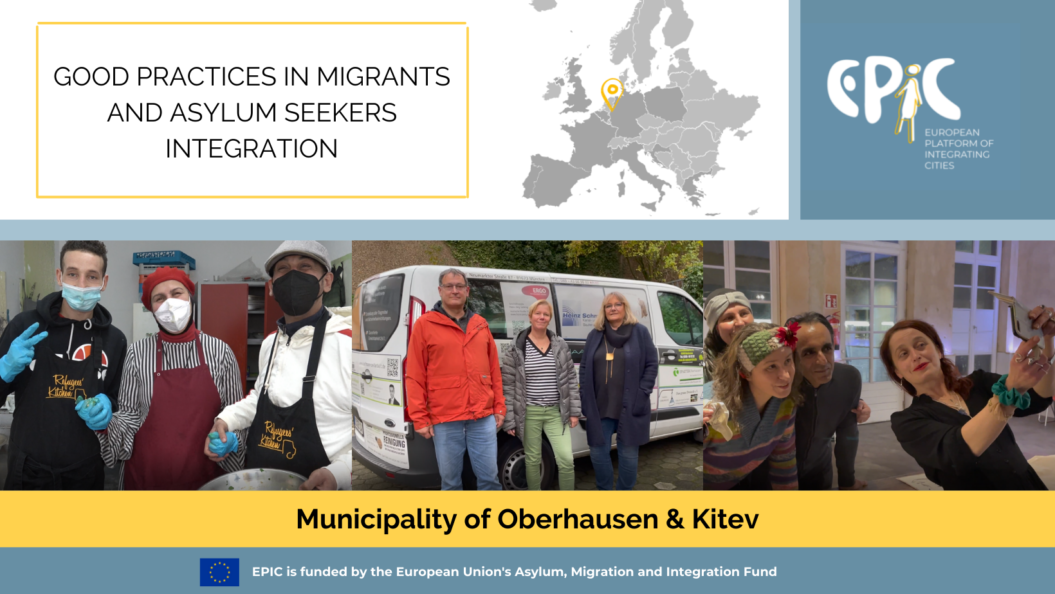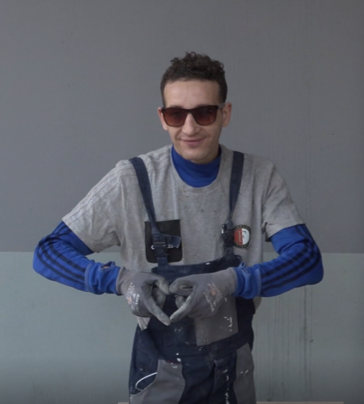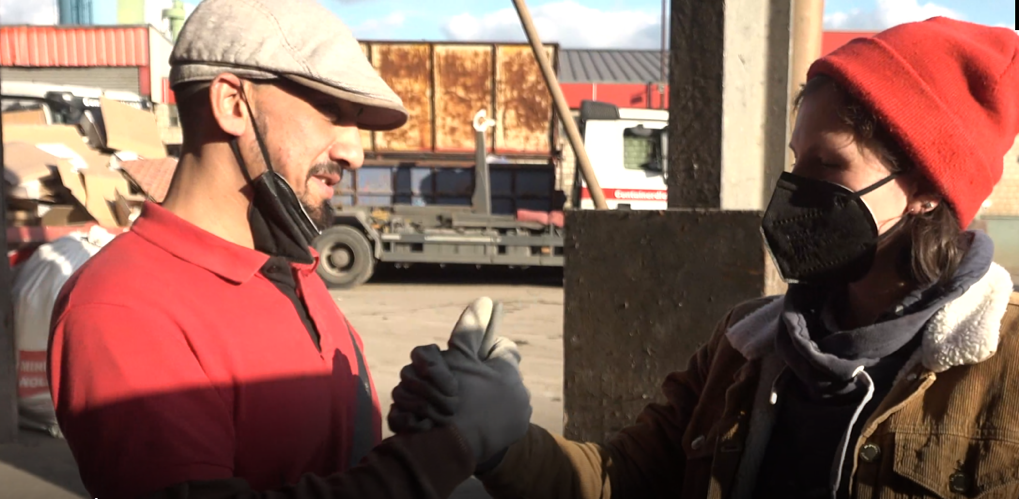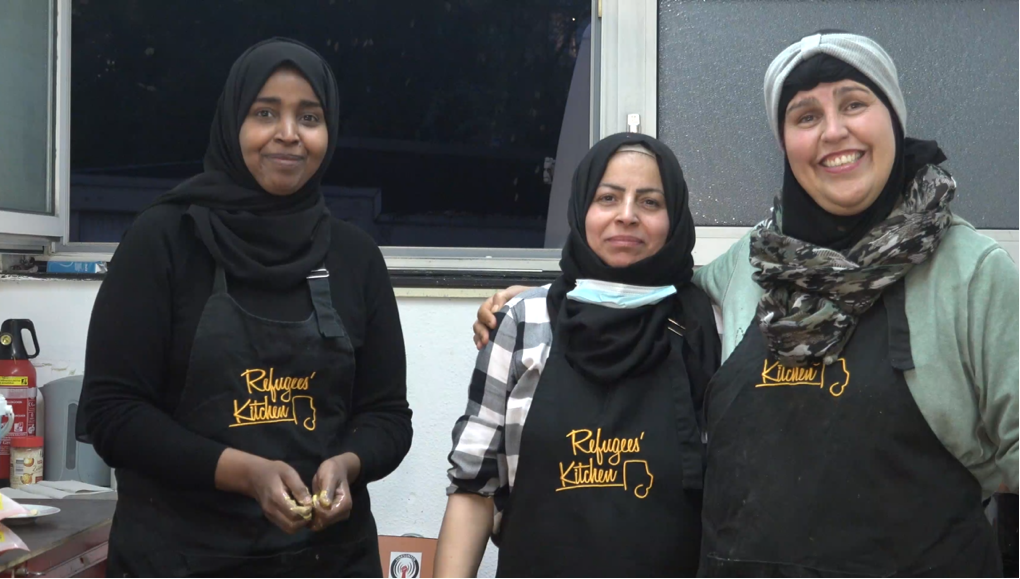
GOOD PRACTICES IN OBERHAUSEN
REBUILDING TOGETHER AND MAKING OBERHAUSEN A HOME FOR ALL, BY KITEV & THE MUNICIPALITY OF OBERHAUSEN
SCROLL DOWN TO WATCH THE VIDEO
Oberhausen is a city in north-west of Germany that took in a large number of refugees during the 2015-2016 immigration influx and faced a serious housing shortage for the new arrivals. Refugees that escaped the Syrian war, but also from Afghanistan and many African countries were initially housed in public gyms and halls around the city. The conditions in these places were uncomfortable and it quickly became clear that the emergency shelters are only a temporary solution, while a more comprehensive and systematic approach is needed for long term housing.
A concept of private housing was born. The search for housing opportunities is managed through the usual channels: looking up newspaper ads such as those of the “Wochenanzeiger”, browsing on property websites, contacting and negotiating with private owners, landlords and agencies. The work is mostly done by the SBO – Oberhausen’s Service Operations with some help and assistance by KI – the Municipal Integration Centre. “This triangular constellation of landlord-KI-SBO works very well. So, I must say that I like renting out to the city of Oberhausen”, says Torsten Wübling, a local landlord who was looking for a capital investment in rental housing and ended up purchasing a building that came with several migrant letting contracts by the city.
Today Oberhausen’s goal is to offer private housing for migrants as much as possible. Privacy plays a crucial role in the process of successful integration. Privacy isn’t only preferred for general daily living, but most importantly for studying, German language learning and training – activities that migrant population is often involved in. Although many people are still bound to spend the first half a year in collective shelters (because it is hard for the city to keep up finding suitable flats), the project has taken off and produced good results.
Oberhausen is also known for offering socio-cultural, artistic and community-building activities for migrant people. Driven by an NGO named Kitev, a number of interactive projects and initiatives have been carried out, the latest one called GENAU (GEmeinsam Neu AUfbauen) that translates to “Rebuilding together”.
Since 2020 GENAU involves activists, interested migrants and refugees to work together on renovating the ground floor of a former water tower in the central station: a building that had been empty for several years and that the NGO had been using for temporary actions since 2006.

Once the basics of the renovation were done, the following stages of the work were carried out through skills-developing workshops, such as: operating tools, mixing materials, graphic and logo design (for the upcoming café), and eventually a carpentry workshop to design and construct their own furniture for the café.
Marzio, one of the instructors and handyman during the renovation project, points out: “We were working with people from everywhere, from different backgrounds. And there was no boss giving orders and telling what you must do. We were in this together, learning by doing from each other.” This space is now open a few days a week for an open café with consultation, breakfast for women, cooking and discussion evenings.

Prior to the GENAU project, Kitev had already undertaken participatory renovation projects. These included the renovation of flats in a high-rise building in 2015/2016 where the Unterhaus, a socio-cultural meeting place, is located, and the renovation of an exhibition space in a joint work with migrants in 2020/21. The renovation of the exhibition rooms was motivated by the newcomers who wanted to improve the space. Once finished, Unterhaus is going to act as a migrants’ community hub, a meeting point, a socio-cultural centre that also offers courses and seminars, among others on subjects such as event management and public relations.

These will be complementary to the already existing long list of activities organised by Kitev: language courses, language café, calligraphy workshop, screen printing workshop, Refugees’ Kitchen, Free University, reading and debating club, numerous cultural events, as well as legal advice and counselling for job seeking.
Sam Youssef (Public Relations Manager, Kitev): “Co-existing together is our goal. In Kitev we feel together, regardless of your religion, background or beliefs”.